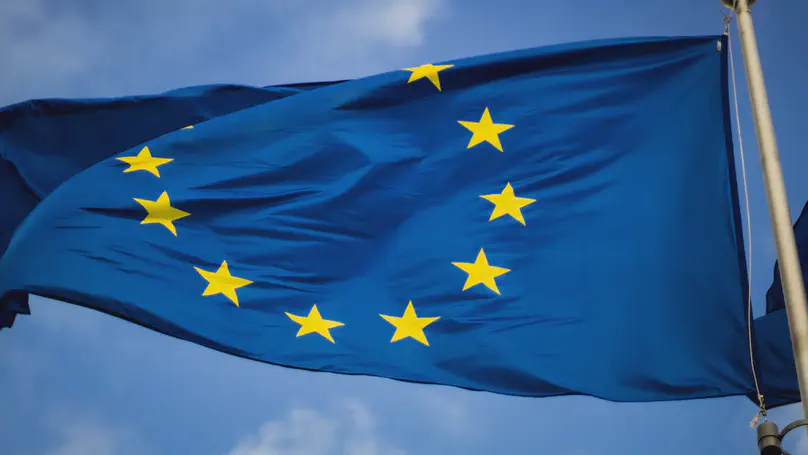Biography
I am an Associate Professor of International Relations at Marmara University’s Faculty of Political Science. I have a Ph.D. in political science and international relations from Yildiz Technical University. My research interest covers Social Data Science, Computational IR, Qualitative and Quantitative Methods in Social Science Research.
Download my resumé
- Data Science
- Computational Socail Science
- International Relations
-
PhD in Political Science and International Relations, 2017
Yildiz Technical University
-
MS in Eurasian Studies, 2010
Uppsala University
-
MA in Economics, 2009
Dalarna University
-
BA in International Relations, 2006
Istanbul University
Skills
100%
100%
100%
100%
100%
100%
Experience
Teaching
Featured Publications

The Module project on “The EU’s Inter-regional and Trans-regional Relations” is called as EUITREL. EUITREL’s central theme is to examine the impacts of EU’s inter-regional and trans-regional relations on world politics by studying and teaching the subject. The rationale behind this project is that we are currently witnessing a transition from the classical Westphalian world order to a world order where regions – next to states – play a central role and where processes of regional integration increasingly shape international relations. This transition is linked to a series of transformations in the nature and scope of regional integration processes. After a first generation of regional integration that focused primarily upon trade and regional integration, a second generation – often referred to as ‘new regionalism’ – broadened regional integration to internal policies and regulations. Today, a third generation of regionalism is emerging that emphasizes the role of regions as global actors. However, there are very few studies that compare and contrast the whole body of inter-regional (region-to region) and trans-regional (region-to-third countries) relations, and almost none in terms of special teaching course. Departing from the lacuna in the literature and the practice, this project aims: i) to teach EU’s inter-regional and trans-regional relations ii) to study inter-regional and trans-regional relations in comparative way, iii) disseminate that knowledge to other interested individuals and entities (i.e. universities, think-tanks etc.)

The article studies Turkey’s twiplomacy - how Turkish diplomats use Twitter in performing their diplomatic outreach and public diplomacy. The literature review shows that there is a lack of a comprehensive large N study of Turkey’s twiplomacy. The article fills in this gap by collecting and analyzing data set of Twitter posts by 76 diplo- mats from 2010 to 2020. It helps understand how and to what extent Turkish diplomats maintain their presence on Twitter. We achieve this goal using two groups of methods. Firstly, we derive descriptive statistics for several user metrics including raw numbers of tweets per user and per date as well as retweet, reply, and like counts per user. Sec- ondly, we analyze content of tweets through calculation of their sentiment scores.The main findings indicate that the Twitter presence of Turkish diplomats is relatively limited and reliant on a few prominent figures. Though Turkish diplomats are selected from well-educated individuals who can make the greatest use of available opportu- nities provided by social media, relatively few of them are active on Twitter. Another significant conclusion is that Turkey’s twiplomacy is inconsistent and driven by indi- viduals rather than a part of a wider strategy or framework. Online activities of different state institutions are not synchronized for efficient use of social media and so-called twiplomacy. Finally, according to the results of the content analysis, Turkish diplomats usually employ positive language in their tweets, as seen by the most frequently used terms, related emotions, and sentiment scores. It confirms the idea that Turkish diplo- mats tend to promote messages demonstrating Turkey’s endorsement of international cooperation.

Global International Relations (IR) research promotes more spaces for a broader spectrum of histories, insights, and theoretical perspectives beyond the conventional dominant Western ones in the IR discipline. The primary goal of this paper is to highlight that the study of Regionalism has a significant role in supporting the initiative of ‘globalizing IR’ by representing a sub-discipline that is open to new ideas, theories and methods, especially those emanating from non- Western contexts. As such, Regionalism is one of the sub-disciplines of IR and International Political Economy (IPE) with a tremendous potential to showcase global-IR trends. This article utilizes a bibliometric analysis as a proxy for mapping out the diverse and complex intellectual structure of Regionalism as a sub-discipline of IR. Our findings indicate that the remarkable rise in the total number of contributions from non-Western scholars to the Regionalism literature in the last decade suggests that unlike the theory generating mainstream studies Regionalism studies have become dominated by non-European/non-Western contexts.
Recent Publications
Contact
- hakan.mehmetcik@marmara.edu.tr
- (+90) 216 777 43 22
- Marmara University, Goztepe Campus, Istanbul, 34413
- Faculty of Political Science, Department of International Relations
-
Monday 10:00 to 13:00
Wednesday 09:00 to 10:00 - Book an appointment
- DM Me